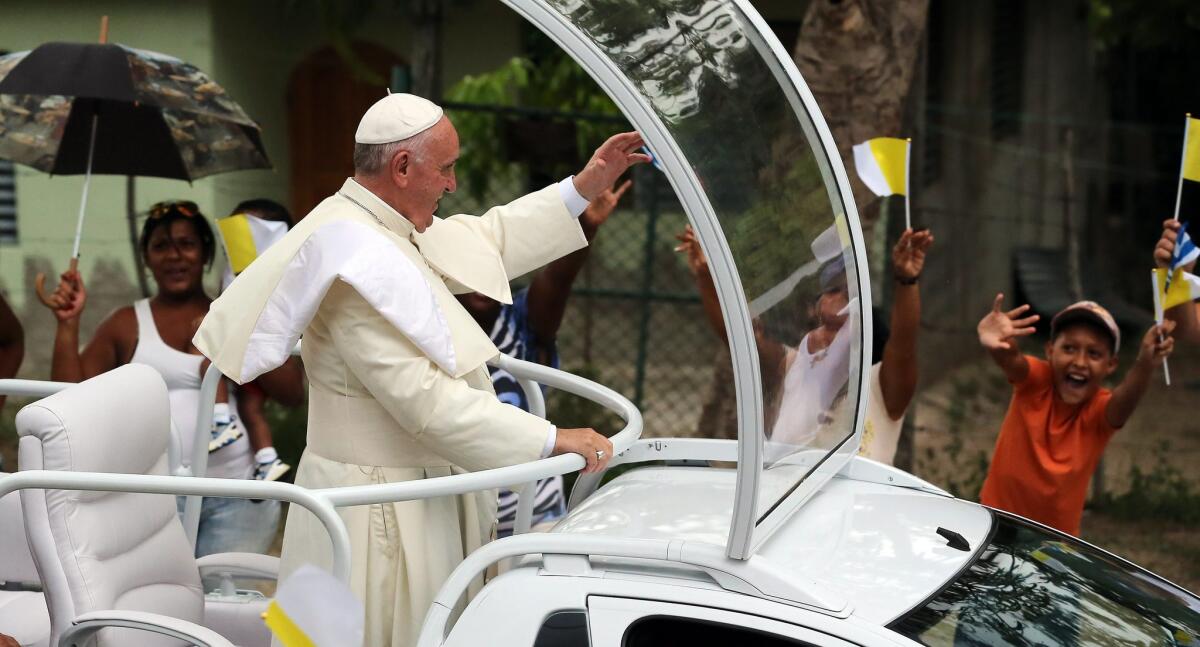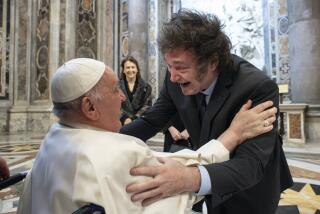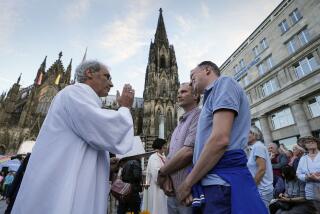Editorial: Remember when anti-Catholicism ran deep in American politics?

Pope Francis waves on his way to the village of El Cobre, Cuba, on Sept. 21. Pope Francis is in Cuba as part of a historic nine-day trip that will also take him to the United States this week.
When Pope Francis arrives in the United States on Tuesday, a greeting at the airport from President Obama will be just the beginning of what is expected to be an ecumenically ecstatic reception.
According to a recent Washington Post-ABC News poll, 70% of Americans have a favorable impression of the pope. In Congress, where Francis will address a joint session Thursday, Democrats and Republicans alike are claiming him as an ally. Democrats are associating themselves with the pope’s solidarity with immigrants, his warnings about climate change and his critique of unbridled capitalism, while Republicans are trying to tie a proposed ban on abortion more than 20 weeks into a pregnancy to Francis’ anti-abortion teaching.
Much of the enthusiasm about Francis is a response to the man. It’s difficult not to be charmed by the 78-year-old Jesuit’s humility or moved by his compassion for the poor and his belief that the church should be a “field hospital” for the spiritually wounded. Many who express admiration for the pope are less praiseworthy of the organization he leads. In the Washington Post-ABC News poll, only 55% of Americans had a favorable opinion of the Roman Catholic Church.
Yet even this singularly charismatic pope benefits from a phenomenon that is not often remarked on: the ebbing of the anti-Catholicism that long infected American culture and politics. For much of this nation’s history, an invitation for the bishop of Rome to address Congress would have been unthinkable — as unthinkable as the notion of a Roman Catholic president.
Republican presidential candidate Ben Carson is rightly being criticized for saying, “I would not advocate that we put a Muslim in charge of this nation.” Yet in 1960, John F. Kennedy had to contend with assertions that his faith, too, was somehow un-American. Kennedy felt compelled to declare to an audience of Protestant clergymen that “I believe in an America where the separation of church and state is absolute; where no Catholic prelate would tell the president — should he be Catholic — how to act.”
Today, anti-Catholicism seems quaint and Catholics are well represented in positions of power. Kennedy was the first and last Catholic to be elected president, but several Catholics have sought the presidency since then, including current Secretary of State John F. Kerry, the 2004 Democratic nominee, and several candidates for the 2016 Republican nomination. Vice President Joe Biden, who is considering a 2016 run, is also a Catholic. So are six of nine Supreme Court justices and Speaker of the House John A. Boehner (R-Ohio), the official who invited Francis to address Congress on behalf of colleagues of many religious backgrounds.
That invitation wouldn’t have been possible without a decline in one species of religious bigotry. May the same fate befall all such prejudices.
Follow the Opinion section on Twitter @latimesopinion and Facebook
More to Read
A cure for the common opinion
Get thought-provoking perspectives with our weekly newsletter.
You may occasionally receive promotional content from the Los Angeles Times.






